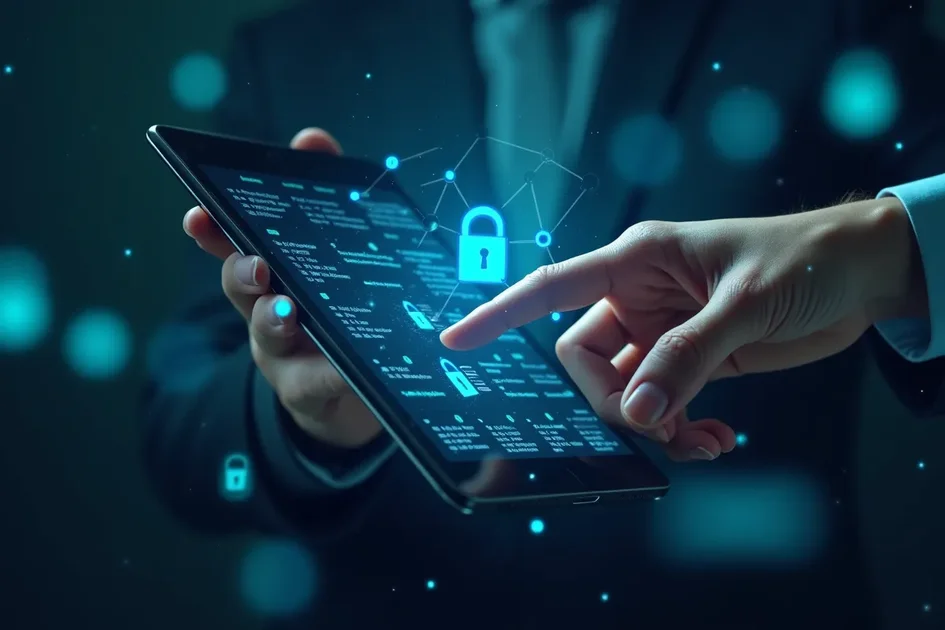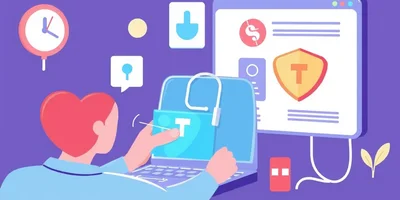Is a Phone Number PII? Unmasking the Truth

Short Answer: It depends.
While phone numbers might not seem particularly sensitive at first glance, their potential to become Personally Identifiable Information (PII) cannot be ignored. In this post we'll examine phone numbers' nature as PII by discussing various contexts where they become sensitive data; potential risks that they pose; as well as best practices to protect it.
What Is Personally Identifiable Information (PII)?
Personally Identifiable Information, commonly referred to as PII, refers to any data/information which could potentially identify an individual based on his/her name, address and Social Security Number - in addition to less obvious points like IP addresses, login IDs, social media profiles or phone numbers.
Data privacy laws and regulations worldwide emphasize protecting Personal Identifiable Information (PII). Laws such as California Consumer Privacy Act in the US and Europe's General Data Protection Regulation both focus on protecting this sensitive data to maintain individual rights to privacy. Both of these regulations offer an expansive definition of PII including any data linked directly or indirectly with an individual person.
The Evolution of Phone Numbers as Identifiers
Phone numbers were formerly only a tool of communication; their function as identifiers was seldom given any attention. Phone numbers have become vital information points utilized for several reasons as the internet and mobile technologies develop:
- Communications: Mostly for text messaging and voice calls, communication involves.
- Verification: Many web services utilize them to confirm user identities either during password recovery or registration.
- Authentication: Two-factor authentication (2FA) often relies on them to send verification codes, adding an extra layer of security.
- Marketing: Companies gather them to forward ads and marketing messages.
- Data Linkage: They may be connected with other personal information, boosting the capacity to profile individuals.
Phone Numbers as an Identification Tool
While alone a telephone number might not directly identify someone, when combined with other pieces of information it becomes an effective means of identification. Here's why.
Phone Number Linked with Other Personal Info
Affiliating phone numbers with other personal data (name, address or email addresses for example) increases the risk of identification significantly. Databases and online services commonly utilize phone numbers as unique identifiers that link them back to profiles with various personal details - making tracking individuals across platforms and services much simpler and accessible.
Verification Codes
Are Common Many services utilize verification codes as part of the sign up process for new services, creating a direct link between your phone number and identity - anyone accessing both could gain entry to your accounts!
Scammers
Use Phone to Target Individuals in Fraud Phone scams have long been used by criminals as an easy means of conducting fraudulent activity, particularly phishing attacks where scammers send fake messages or call posing as legitimate organizations to gain personal data and commit identity fraud. Furthermore, phone numbers can easily be falsified so scammers can impersonate someone else and commit more fraud.
When Are Phone Numbers Considered Personally Identifiable Information (PII)?
A telephone number generally falls into this category when:
As Soon As it Is Linked with Other Personal Information
Once combined with other forms of personal data, an it becomes an effective identifier. For instance, when combined with name, address or email information it becomes invaluable in terms of profiling an individual for various uses such as marketing campaigns, data analysis projects or even surveillance operations.
Services That Use Phone Numbers to Locate Individuals
Services that utilize phone numbers as means for identifying or locating an individual contribute to a perception that phone numbers constitute personally identifiable information (PII). Mobile applications requiring number verification could potentially track user activities and locations; similarly phone numbers combined with GPS can pinpoint someone's exact location - raising serious privacy issues in doing so.
Marketing or Promotional Purposes Without Express Consent
Unauthorized use of phone numbers for marketing or promotional purposes without explicit consent constitutes a serious privacy breach. Companies collect phone numbers for this purpose and then use them to send unsolicited advertising messages that infringe upon privacy as well as cause irritation and harassment to recipients of these ads. This practice not only violates an individual's personal space but can lead to serious discomfort for many recipients as well.
Reducing Risk by Treating Phone Numbers as Non-PII
Treating phone numbers as non-PII may have serious repercussions, including:
Identity Theft
Phone numbers can serve as an entryway into identity theft. By obtaining one of your phone numbers, attackers can launch a series of steps designed to gather more personal data and steal it - potentially leading to identity fraud or worse. A device such as an attacker could use one phone call as leverage against you by reseting passwords for email accounts, social media profiles and financial accounts with which your identity might reside.
Privacy Invasion
Individuals' personal information (PII) can become subject to unwanted privacy invasion when handled as non-PII by businesses and organizations without explicit consent from them; companies might collect phone numbers without such explicit approval and use them without their knowledge for unwanted calls, messages and tracking - leading to unwanted calls, messages and tracking that damage trust between people as it compromises individual's sense of personal integrity and their feeling that their privacy has been invaded.
Fraudulent Activities
Fraudsters take advantage of phone numbers in various scams. For instance, they might send fraudulent phishing messages purporting to come from banks, government agencies, or trustworthy organizations in an attempt to trick individuals into providing sensitive data. Furthermore, phone number spoofing allows fraudsters to pose as someone else, furthering scams and illicit activities.
Given its potential risks, protecting your phone number is of utmost importance.
Here are some best practices:
Restrain Exchange
Please use care while entering your phone number. Share it only with reliable persons or companies to prevent spam and frauds using it against you. Safety calls for you to prevent public sharing of information or with unidentified entities as these might expose yourself to frauds and spammers.
Use Caution While Completing Online Forms
Think about whether you really need to include your phone number before completing an online form. Should a website ask for this number without any justification, proceed carefully; make sure they have a clear privacy policy to protect your personal information.
Using Virtual Numbers
For services requiring phone numbers, think about choosing virtual numbers since they enable anonymous and safe message receipt without utilizing your own number, therefore helping to preserve privacy and prevent unpleasant calls or messages directly reaching you.
Watch Your Phone Bills Closely.
Review Phone Charges Frequently Watch your phone bills to find illegal charges or suspicious activities that can result in any unanticipated or hidden expenditures, or unrecognized charges and numbers that need early, early resolution by your service provider. Should any odd or foreign costs show up on the account, get in touch immediately to prevent reoccurring issues.
Turning on Two- Factor Authentication (2FA)
Your phone number clearly qualifies as personally identifiable information even if at first it would seem to be benign. We will discuss its nature as personally identifiable information by looking at many settings where numbers become sensitive data as well as related concerns, together with recommended practices to safeguard it.
Apply call blocking and filtering.
Use call blocking and filtering tools included by your mobile device or phone service provider to stop unwelcome calls or messages from dubious or unknown numbers. Take also into account outside software meant especially to combat spam calls.
Be cautious of phishing attempts.
Any sensitive information should never be shared on uninvited phone calls or texts from unidentified numbers; phishing schemes using phone numbers should always be taken extremely seriously. Rather, get in touch with the company using reliable channels straight away should any issues about the validity of its demand for personal data surface.
Legislative Protection of Phone Numbers
Protecting phone numbers and other personally identifiable information (PII) depends on legislation in no less a fundamental role. There are several rules and laws in place to guarantee companies handle people's PII ethically while respecting people's privacy rights. Following are a few important laws:
GDPR, General Data Protection Regulation
Under the General Data Protection Regulation, an EU regulation applicable to all companies functioning inside its boundaries, personal information of European individuals is protected. Organizations have to have clear permission before gathering and utilizing phone numbers gathered under these rules; also, individuals have access, correctability, and portability rights about their data falling into this category.
Consumer Privacy Act of California (CCPA)
Companies running out of California have to follow California Consumer Privacy Act. Consumers have rights under this law to know which personal information is being gathered, how it is being used, and with whom it will be shared. They also have an opt-out option should companies trade or sell personal data related to phone numbers for marketing uses without first clearly obtaining their first-hand approval.
TCPA: Telephone Consumer Protection Act.
This legislation limits telemarketing calls as well as autodialed, prepared, text message calls delivered in the US without specific prior agreement of those being contacted back by companies for marketing or text messaging campaigns. The National Do Not Call Registry (NDNCR) allows people to opt-out of getting such calls under TCPA rules.
e-Privace Directive
Aiming to complement GDPR by especially targeting phone numbers as an electronic form of communication service, the EU regulation also known as the Cookie Law addresses privacy and electronic communications. Companies utilizing phone numbers for marketing have to get permission before using them as well as provide people the option not to get marketing messages in line with their policies.
The Future of Phone Numbers and PII
Changing words, the relevance of phone numbers as PII will probably become even more crucial. Here are some noteworthy changes and patterns to be informed of:
Rising Mobile Device Consumption
The growing usage of mobile devices will ensure that numbers will still be fundamental for identification, correspondence, and validation processes. Since more services rely on mobile numbers security, the need of protecting these numbers will only become more relevant.
Improved Data Privacy Guidelines
To safeguard private data and guarantee people's rights, be ready for tougher data privacy regulations not too far off.Governments all over are realizing more and more the need of safeguarding personal data, including phone numbers. The laws that are about to arrive will probably make it more difficult for businesses to obtain consumer permission and safeguard phone numbers.
Data Anonymization : Advancements
The most recent advancements in data anonymizing methods will help to reduce the danger connected to using phone numbers as PII. Anonymizing data is the process of changing it such that people cannot be quickly identified. As these techniques enhance it may be feasible to make use of numbers that restrict security danger.
Conclusion
Phone numbers, like other personal information (PII), might be a security risk in terms of identity theft and privacy invasion as well as fraudulent acts violating an individual's confidence. Therefore, one should approach someone differently depending on other types of PII that fit their profiles.
Understanding the dangers phone numbers present and acting early to protect them can assist to preserve your privacy. You may lower the possibility that your number is used and compromise by third-parties by limiting sharing, being careful when completing forms online, selecting virtual numbers as well as closely monitoring phone bills for odd expenditures and being alert for phishing efforts.
From phone numbers to financial information and beyond, legislation is absolutely essential in safeguarding phone numbers and other types of personal identifiable information (PII). Essential safeguards and let people have choice over how their PII is used by third-parties are offered by laws such GDPR, CCPA, TCPA, and the ePrivacy Directive.


